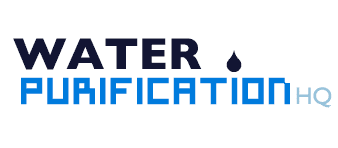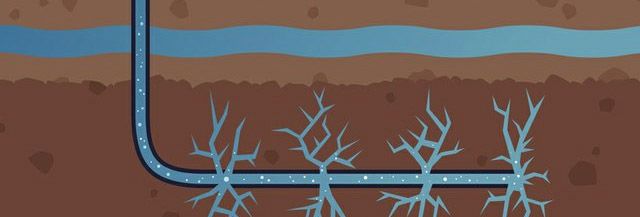Fracking, also known as induced hydraulic fracturing, is a mining technique that is currently in vogue around the world. That’s because it allows mining companies to extract oil from places that were once thought to be off limits. The technique works as follows: water is mixed with sand and chemicals and then this mixture injected at high pressures into a wellbore. Fractures form and then petroleum is extracted from them. That’s the short version, anyway.
So, what does fracking have to do with the water supply?
Fracking consumes significant amounts of water. It also contaminates water. This is just a fact. Water is mixed with up to 600 chemicals before it is injected. Some of these chemicals are known carcinogens and toxins, such as mercury, lead, formaldehyde, methanol, and radium, among other contaminants.
What happens with this water after it has been contaminated is the crucial question. Some states, for example, have recently allowed companies practicing fracking to treat their own wastewater before releasing it into lakes, rivers and streams. This is happening in North Carolina, among other places:
“The proposed wastewater rules mistakenly allow treated wastewater from oil and gas operations to be discharged into rivers and streams. What’s troubling is that the state has no water quality standards for many of the contaminants in the wastewater.”
When contaminated water like this is released into the larger water supply, it increases the burden on municipal treatment plants, and it usually means that the water will have to be treated excessively. Depending on the capacity of the treatment center, there is a risk for the tap water supply to be unsafe.
Fracking can also contaminate nearby groundwater
The problem with fracking is not limited to the release of contaminated water that has been used for injection. There is an additional issue here. Fracking contaminates nearby groundwater during the process itself. A recent Duke study found excessive levels of methane in wells close to fracking sites. It’s possible that there are other contaminants present as well.
What you can do
Regardless of your political allegiances, if you are on this site, it is because clean water is a priority for you. Here are a few things you can do to protect your drinking water supply:
- Get informed – Find out what is happening in your state. What legislation is up for debate, what has passed, where fracking will happen (if laws have been passed in favor).
- Contact your elected representatives – Whether you voted for them or not, make sure you let them know that you are concerned about the water supply.
- Take measures to purify your own water if you are anywhere near a fracking site – Ok, this goes without saying. We advocate purifying your water regardless of whether you are near a fracking site, but the urgency level certainly goes up in this case. You can poke around the site to see all of your options, from pitcher filters to reverse osmosis systems. If you use well water, and you are near a fracking site, you may want to seriously reconsider your water source. We don’t want to say that you need to relocate, but you also should not sleep on the aforementioned Duke study.
If you have any thoughts on fracking and the water supply, please share them in the comments below. We do not want a political debate, but if you have constructive thoughts as they relate specifically to drinking water, they are welcome.







{ 0 comments… add one }